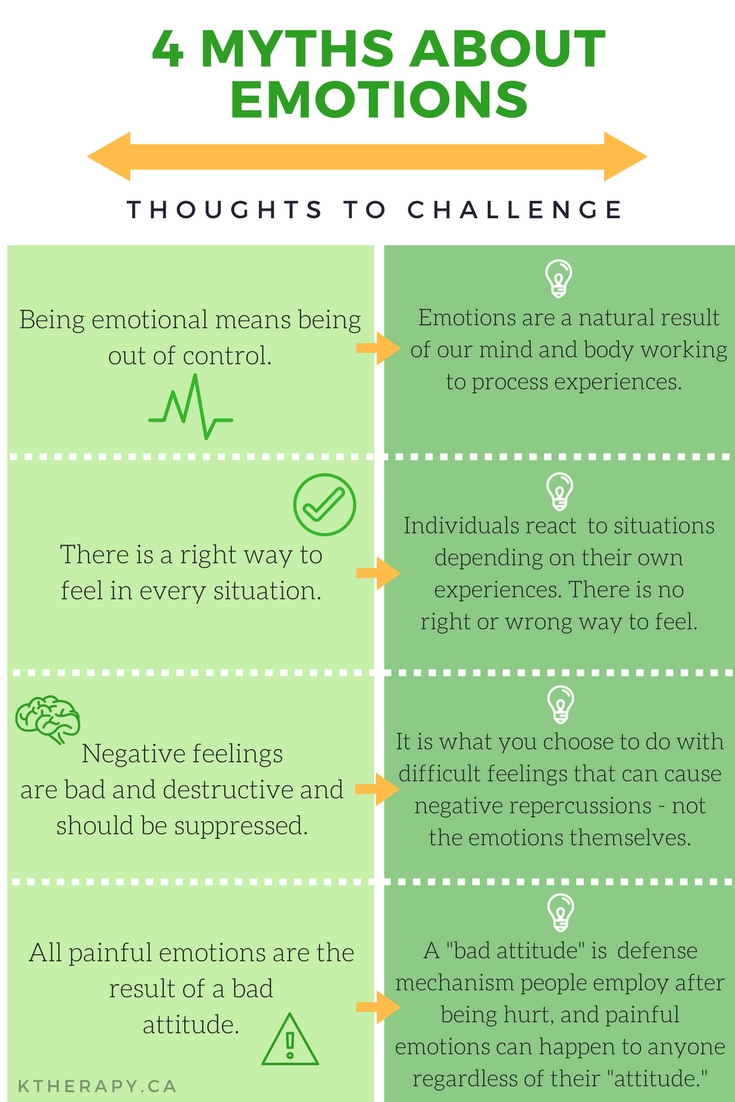Emotions are something that we all experience, and yet so many people misunderstand or apply judgements against them. Misunderstandings sometimes lead to individuals being mocked, shamed or dismissed for feeling and expressing emotion (or for not publicly expressing emotions, especially in times of grief).
There are numerous myths or misunderstandings about emotions that lead to people feeling they need to bottle everything up inside or not express themselves, but that can just lead to things building up inside of us over time. And what happens when something is held in and builds up and up and up? Eventually it explodes! This explosion can come in the form of tantrums, tears, anger or even violence, and unhelpful coping techniques.
These are four of the most prevalent myths about emotions that I hear about in therapy, and the way I respond to them to try to help my clients gain a deeper understanding of themselves and their emotions.
1. MYTH: Being emotional means that I am out of control.
Not true. Emotions are a natural reaction we have to people, situations, thoughts and experiences. They're a natural result of our body and our mind working to process what is happening to us.
2. MYTH: There is one right way to feel in every situation.
Not true. We all react to different situations in different ways - we are all individuals, and our responses to outside situations are individual too! Our reactions and the emotions connected to them are related to our own individual experiences in life, and there is NO right or wrong way to feel.
3. MYTH: Negative feelings are bad and destructive, and we should suppress them.
Not true. Negative or difficult feelings can make us feel bad, however it is what you choose to do with these feelings that matters. You can make choices that have negative repercussions, but that is because of the actions an individual chooses to take, not because of the emotions themselves.
4. MYTH: All painful emotions are the result of a bad attitude.
Not true. When someone has a "bad attitude," it is often a defense mechanism they are employing after being hurt. It doesn't mean they will experience more painful emotions than anyone else - painful emotions can and do come up for everyone, regardless of their attitude.
Because I think this is such an important topic for us to reflect on, I've also created an info-graph below to summarize the above points. Feel free to save and share!


